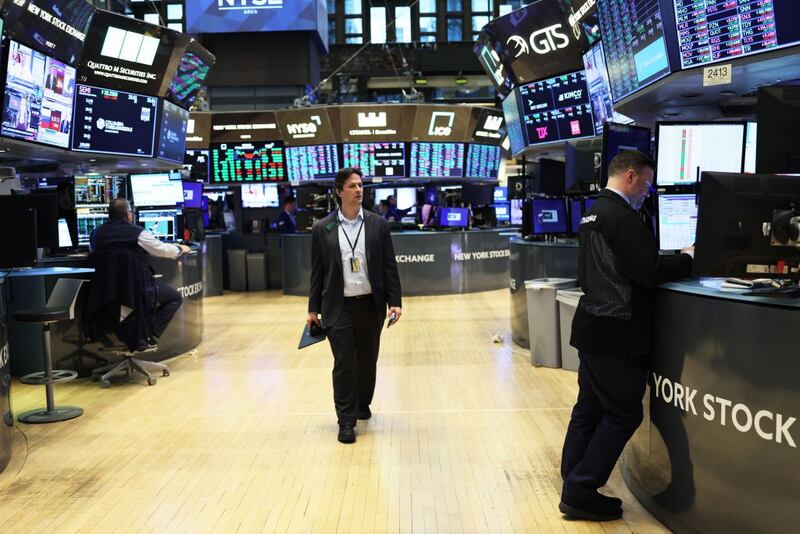U.S. stocks took another hit on Wednesday as jittery investors absorbed news from retail giant Target that profits had been cut by half.
>>> STREAM CHANNEL 9 EYEWITNESS NEWS LIVE <<<
The company reported Wednesday that its profit tumbled 52% compared with the same period last year in an environment of rising costs for things like fuel. Purchases of big TVs and appliances that Americans loaded up on during the pandemic have also faded, leaving Target with a bloated inventory that must be marked down to sell.
Target’s quarterly financial report comes a day after shares of rival Walmart tumbled about 17% for similar reasons after it posted quarterly results.
Investors have been on edge since the beginning of the year as inflation rates climbed far above traditional levels. The government has responded by raising the interest rate to gradually cool the economy, causing further losses over fears the actions could set off a recession.
READ: ‘Nothing at all on the shelf’: Parents seek imported baby formula amid shortage
University of Florida economist Dr. Amanda Phalin said she also anticipates a recession to form over the next year or two despite efforts to avoid job losses.
“It is possible to raise the interest rates without increasing unemployment theoretically, but it has never been done before,” Phalin explained.
What happens, if anything, will in part rely on how Americans react and plan. Economists are careful to warn that the stock market likes to overreact and isn’t a good reflection of the economy, even as many Americans use it as a measuring stick.
READ: Inflation costing families hundreds per month, analyst says
People could trigger a recession without one being forecast just by cutting down on their spending and investing and stuffing more money underneath their mattresses, Phalin said.
“Our expectations about the future and how we react to those expectations can actually cause those expectations to become reality,” she warned.
However, she said the consensus was that a 2022 or 2023 recession would be minor, with minimal job losses and a quick recovery. Phalin compared such a scenario to 2000, rather than the Great Recession of 2008 that’s still a fresh scar on many minds.
EXPLAINER: Why is Wall Street close to a bear market?
The economist said the Biden administration had tools other than the interest rate that they have not yet used to lower prices for consumers, such as eliminating the Jones Act or mandating the expansion of many ports. She said they could also elect to remove tariffs slapped on imported goods by the Trump administration, which American consumers wind up having to pay.
However, she said the recession itself wasn’t what she was concerned about. The possibility of a jobless recovery, seen after the 2000 recession and temporarily after the 2008 crash, was what made her most nervous.
“I don’t want us to get to a point where even in a mild recession, our economic growth recovers, but our job market doesn’t,” she said. “That is my main fear.”
READ: Stocks fall sharply as Target’s woes renew inflation fears
Click here to download the free WFTV news and weather apps, click here to download the WFTV Now app for your smart TV and click here to stream Channel 9 Eyewitness News live.
©2022 Cox Media Group





